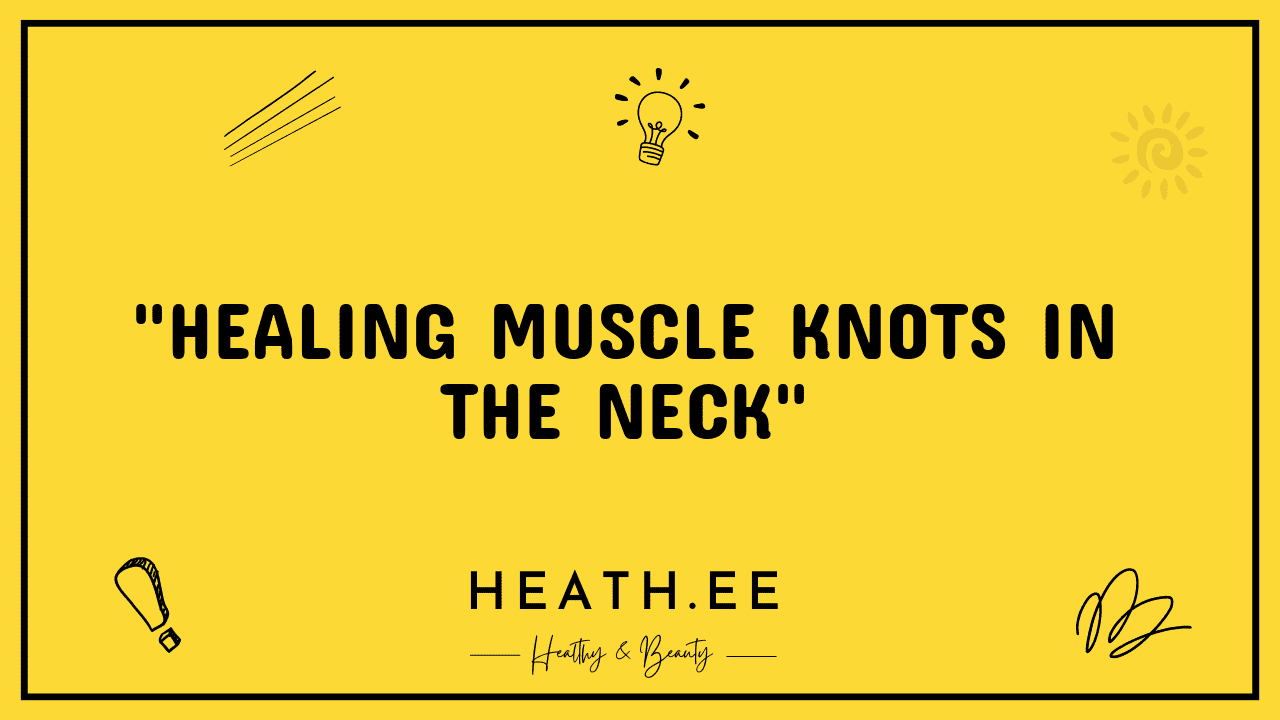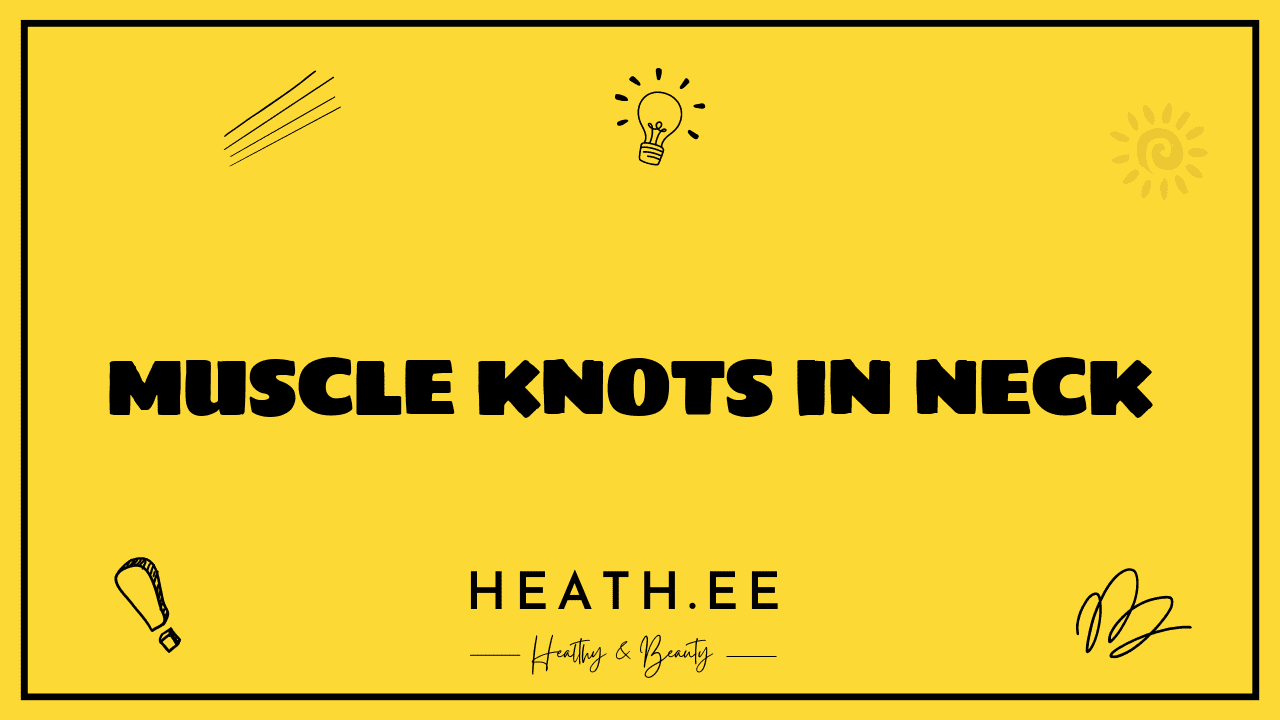Muscle knots in the neck are a common source of neck pain and tension. While the exact cause of muscle knots is still unknown, it is believed to be related to muscle overuse, injury, and stress. In this blog post, we will take a closer look at muscle knots, their symptoms, and how to treat them.
What are Muscle Knots?
Muscle knots, also known as myofascial trigger points, are tense areas of muscle that can cause pain and discomfort. They are caused by a number of factors, including overuse, injury, and stress. Muscle knots can cause localized pain and can also refer pain to other areas of the body. They can be tender to the touch, and can cause stiffness and restricted movement.

Symptoms of Muscle Knots
The most common symptom of muscle knots is localized pain, which can be a sharp, burning, or aching sensation. Muscle knots can also cause referred pain, which is pain that is felt in a different area of the body. This can be caused by the muscle knot pressing on a nearby nerve. Other symptoms of muscle knots include tightness in the affected area, restricted movement, and tenderness when touched.
Causes of Muscle Knots
The exact cause of muscle knots is still unknown, however, it is believed to be related to muscle overuse, injury, and stress. Muscle knots can be caused by repetitive motions, such as typing or playing a musical instrument. They can also be caused by poor posture, injury, or stress.

Diagnosing Muscle Knots
The diagnosis of muscle knots is usually made based on the patient’s history and physical examination. In some cases, imaging tests, such as X-rays or MRI scans, may be ordered to rule out other causes of neck pain.
Treatments for Muscle Knots
The treatment of muscle knots depends on the severity of the symptoms. For mild to moderate cases, treatments may include stretching, massage, and heat or cold therapy. For more severe cases, medications such as nonsteroidal anti-inflammatory drugs (NSAIDs) or muscle relaxants may be prescribed. In some cases, injections of anesthetic or corticosteroid medications may be used to reduce pain and inflammation.
Home Remedies for Muscle Knots
In addition to medical treatments, there are a number of home remedies that can be used to help relieve muscle knots. These include stretching, massage, and heat or cold therapy. Stretching can help to loosen tight muscles and reduce pain. Massage can help to relax tense muscles and relieve pain. Heat or cold therapy can help to reduce inflammation and pain.
When to See a Doctor
If home remedies do not provide relief, it is important to see a doctor. A doctor can diagnose the cause of the muscle knots and prescribe medications or other treatments. In some cases, surgery may be necessary to treat the underlying cause of the muscle knots.
Prevention of Muscle Knots
The best way to prevent muscle knots is to practice good posture and to avoid repetitive motions. It is also important to manage stress and to get regular exercise. If you are engaging in activities that may cause muscle knots, it is important to take frequent breaks and to stretch regularly.
Muscle knots in the neck can cause pain and discomfort, but they can be treated with a variety of treatments. It is important to understand the causes of muscle knots, their symptoms, and how to treat them. If home remedies do not provide relief, it is important to see a doctor for further evaluation and treatment. With the right treatment, muscle knots can be managed and prevented.



